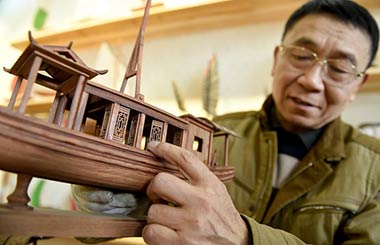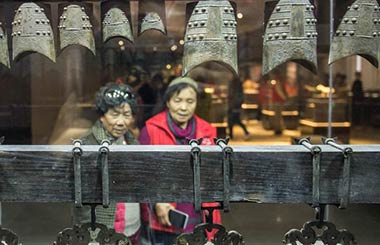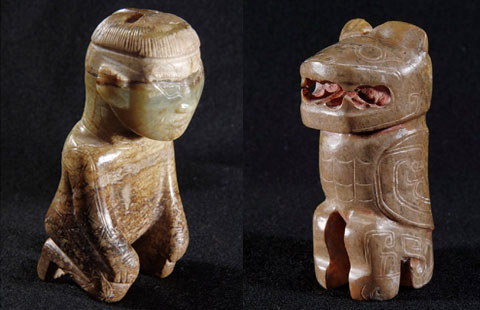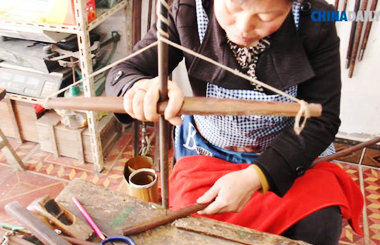Tipping the balance in favor of traditional craftsmanship
By Zhu Lixin and Ma Chenguang ( China Daily ) Updated: 2016-03-18 09:25:54
With modern tools to measure weight widely available these days, craftspeople around the world are struggling to keep handmade steelyards from dying out.
Liu Guangcui, who inherited tools and techniques from her father more than two decades ago, is among the few Chinese makers of steelyards.
On a recent visit to her shop in Hefei city, capital of East China's Anhui province, Liu is seen setting dozens of scale markings on a straight beam made of mahogany. Once the beam is ready, she assembles the hook and sleeves made of copper. The entire process could take her days.
"To make a traditional Chinese steelyard, everything should be finished by hand," says Liu, 48.
The steelyard Liu is working on can weigh things up to 20 kilograms and takes about 48 hours to finish. The larger ones with weighing capacity of 150 kilograms or so take even longer.
Liu's shop, located in rural Xiaomiao township in Hefei's Shushan district, is popular among residents because "it seems buyers here don't have many choices", she says.
Her father had been engaged in the business since the 1950s.
"During my father's time, private businesses weren't permitted, so he would often travel to villages and make steelyards at buyers' homes," she says.
After the economy opened up in the late 1970s, the demand for steelyards increased sharply. Many more private businesses and street vendors got into the trade.
|
|
|
|
|
|
|
|






















 Raymond Zhou:
Raymond Zhou: Pauline D Loh:
Pauline D Loh: Hot Pot
Hot Pot Eco China
Eco China China Dream
China Dream China Face
China Face





